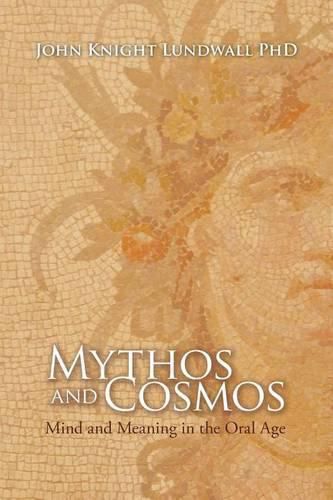Readings Newsletter
Become a Readings Member to make your shopping experience even easier.
Sign in or sign up for free!
You’re not far away from qualifying for FREE standard shipping within Australia
You’ve qualified for FREE standard shipping within Australia
The cart is loading…






A bold new approach to myth studies, Mythos and Cosmos reexamines ancient myth through the template of oral thinking and oral cosmology. Contradicting decades of assumptions about the purpose and function of ancient mythology, Lundwall defines myth as the oral imprinting press of pre-literate peoples and shows that myth belongs to a complex and rational method of information transmission amongst oral peoples. Further, ancient mythology belonged to a cultus which incorporated ritual and symbol in a cosmological system which sought to found the sacred world. Where this work really shines is in its discussion of how ancient oral peoples saw their universe. Oral cosmology is far more complex than the simple flat-earth models discussed in current textbooks. Such myth cycles as the Epic of Gilgamesh, the Labors of Heracles, and the story of the Great Flood are seen completely differently when viewed from within ancient cosmological thought. Many strange features of ancient culture, such as the dancing chorus in Greek theater, are explained in rational and revolutionary ways. The pyramids, ziggurats, and megalithic-henges are also seen in a new light. While academic, the book is written for a general audience. It is a fascinating exploration in ancient history, comparative myth and religious studies, and the ancient mind.
$9.00 standard shipping within Australia
FREE standard shipping within Australia for orders over $100.00
Express & International shipping calculated at checkout
A bold new approach to myth studies, Mythos and Cosmos reexamines ancient myth through the template of oral thinking and oral cosmology. Contradicting decades of assumptions about the purpose and function of ancient mythology, Lundwall defines myth as the oral imprinting press of pre-literate peoples and shows that myth belongs to a complex and rational method of information transmission amongst oral peoples. Further, ancient mythology belonged to a cultus which incorporated ritual and symbol in a cosmological system which sought to found the sacred world. Where this work really shines is in its discussion of how ancient oral peoples saw their universe. Oral cosmology is far more complex than the simple flat-earth models discussed in current textbooks. Such myth cycles as the Epic of Gilgamesh, the Labors of Heracles, and the story of the Great Flood are seen completely differently when viewed from within ancient cosmological thought. Many strange features of ancient culture, such as the dancing chorus in Greek theater, are explained in rational and revolutionary ways. The pyramids, ziggurats, and megalithic-henges are also seen in a new light. While academic, the book is written for a general audience. It is a fascinating exploration in ancient history, comparative myth and religious studies, and the ancient mind.